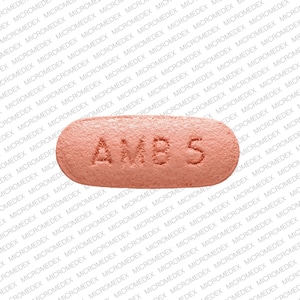What is Ambien?
Ambien is a sedative-hypnotic (sleep) medicine. Ambien is used in adults for the short-term treatment of a sleep problem called insomnia (trouble falling asleep).
Ambien is not recommended for use in children under the age of 18 years.
Ambien is a federally controlled substance (C-IV) because it can be abused or lead to dependence. Keep Ambien in a safe place to prevent misuse and abuse. Selling or giving away Ambien may harm others, and is against the law. Tell your healthcare provider if you have ever abused or have been dependent on alcohol, prescription medicines or street drugs.
What is the most important information I should know about Ambien?
- Do not take more Ambien than prescribed.
- Do not take Ambien unless you are able to stay in bed a full night (7 to 8 hours) before you must be active again.
- Take Ambien right before you get in bed, not sooner.
Ambien may cause serious side effects, including:
- complex sleep behaviors that have caused serious injury and death. After taking Ambien, you may get up out of bed while not being fully awake and do an activity that you do not know you are doing (complex sleep behaviors). The next morning, you may not remember that you did anything during the night. These activities may occur with Ambien whether or not you drink alcohol or take other medicines that make you sleepy. Reported activities include:
- driving a car ("sleep-driving")
- making and eating food
- talking on the phone
- having sex
- sleep-walking
Stop taking Ambien and call your healthcare provider right away if you find out that you have done any of the above activities after taking Ambien.
Do not take Ambien if you:
- have ever experienced a complex sleep behavior (such as driving a car, making and eating food, talking on the phone, or having sex while not being fully awake) after taking Ambien.
- drank alcohol that evening or before bed
- took another medicine to help you sleep
Who should not take Ambien?
- Do not take Ambien if you are allergic to zolpidem or any other ingredients in Ambien. See the end of this Medication Guide for a complete list of ingredients in Ambien.
- Do not take Ambien if you have had an allergic reaction to drugs containing zolpidem, such as Ambien CR, Edluar, Zolpimist, or Intermezzo.
Symptoms of a serious allergic reaction to zolpidem can include:
-
swelling of your face, lips, and throat that may cause difficulty breathing or swallowing
What should I tell my healthcare provider before taking Ambien?
Ambien may not be right for you.
Before starting Ambien, tell your healthcare provider about all of your health conditions, including if you:
- have a history of depression, mental illness, or suicidal thoughts
- have a history of drug or alcohol abuse or addiction
- have kidney or liver disease
- have a lung disease or breathing problems
- are pregnant, planning to become pregnant. Talk to your healthcare provider about the risk to your unborn baby if you take Ambien.
- Using Ambien in the last trimester of pregnancy may cause breathing difficulties or excess sleepiness in your newborn. Monitor for signs of sleepiness (more than usual), trouble breathing, or limpness in the newborn if Ambien is taken late in pregnancy.
- are breastfeeding or plan to breastfeed. Ambien passes into your breast milk. Talk to your healthcare provider about the best way to feed your baby while you take Ambien.
Tell your healthcare provider about all of the medicines you take, including prescription and nonprescription medicines, vitamins and herbal supplements.
Medicines can interact with each other, sometimes causing serious side effects. Do not take Ambien with other medicines that can make you sleepy unless your healthcare provider tells you to.
Know the medicines you take. Keep a list of your medicines with you to show your healthcare provider and pharmacist each time you get a new medicine.
How should I take Ambien?
- See "What is the most important information I should know about Ambien?" above.
- Take Ambien exactly as prescribed. Only take 1 Ambien tablet a night if needed.
- Do not take Ambien if you drank alcohol that evening or before bed.
- You should not take Ambien with or right after a meal. Ambien may help you fall asleep faster if you take it on an empty stomach.
- Call your healthcare provider if your insomnia worsens or is not better within 7 to 10 days. This may mean that there is another condition causing your sleep problem.
- If you take too much Ambien or overdose, get emergency treatment.
What are the possible side effects of Ambien?
Ambien may cause serious side effects, including:
- getting out of bed while not being fully awake and do an activity that you do not know you are doing. See "What is the most important information I should know about Ambien?" above.
- abnormal thoughts and behavior. Symptoms include more outgoing or aggressive behavior than normal, confusion, agitation, hallucinations, worsening of depression, and suicidal thoughts or actions.
- memory loss
- anxiety
- severe allergic reactions. Symptoms include swelling of the tongue or throat, and trouble breathing. Get emergency medical help if you get these symptoms after taking Ambien.
Call your healthcare provider right away if you have any of the above side effects or any other side effects that worry you while using Ambien.
The most common side effects of Ambien are:
- drowsiness
- dizziness
- diarrhea
- grogginess or feeling as if you have been drugged
After you stop taking a sleep medicine, you may have symptoms for 1 to 2 days such as:
- trouble sleeping
- nausea
- flushing
- lightheadedness
- uncontrolled crying
- vomiting
- stomach cramps
- panic attack
- nervousness
- stomach area pain
These are not all the side effects of Ambien. Ask your healthcare provider or pharmacist for more information.
Call your doctor for medical advice about side effects. You may report side effects to FDA at 1–800–FDA–1088.
Ambien Images
Drug Interactions
A total of 480 medications are known to interact with Ambien. Use the Interactions Checker Tool.
Common Interactions Checks
General Information about the safe and effective use of Ambien
Medicines are sometimes prescribed for purposes other than those listed in a Medication Guide. Do not use Ambien for a condition for which it was not prescribed. Do not share Ambien with other people, even if they have the same symptoms that you have. It may harm them and it is against the law.
This Medication Guide summarizes the most important information about Ambien. If you would like more information, talk with your healthcare provider. You can ask your healthcare provider or pharmacist for information about Ambien that is written for healthcare professionals.
For more information, call 1-800-633-1610.
How should I store Ambien?
- Store Ambien at room temperature, 68°F to 77°F (20°C to 25°C).
Keep Ambien and all medicines out of reach of children.
What are the ingredients in Ambien?
Active Ingredient: Zolpidem tartrate
Inactive Ingredients: hydroxypropyl methylcellulose, lactose, magnesium stearate, microcrystalline cellulose, polyethylene glycol, sodium starch glycolate, and titanium dioxide. In addition, the 5 mg tablet contains C Red No. 40, iron oxide colorant, and polysorbate 80.







